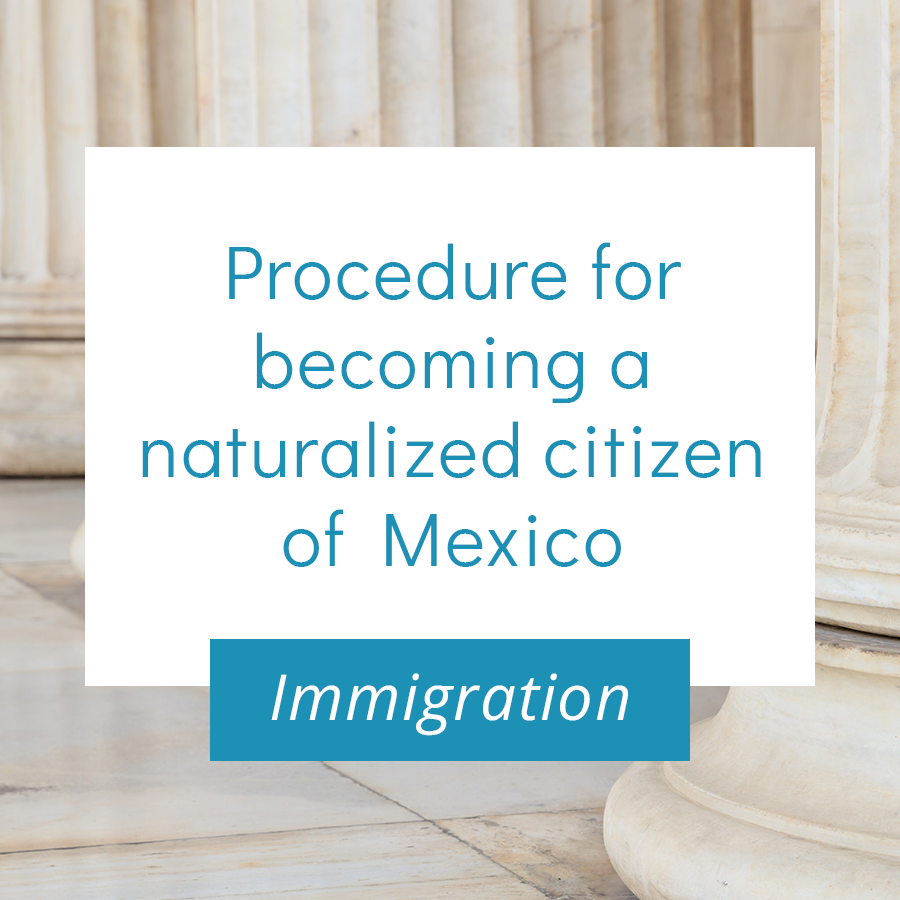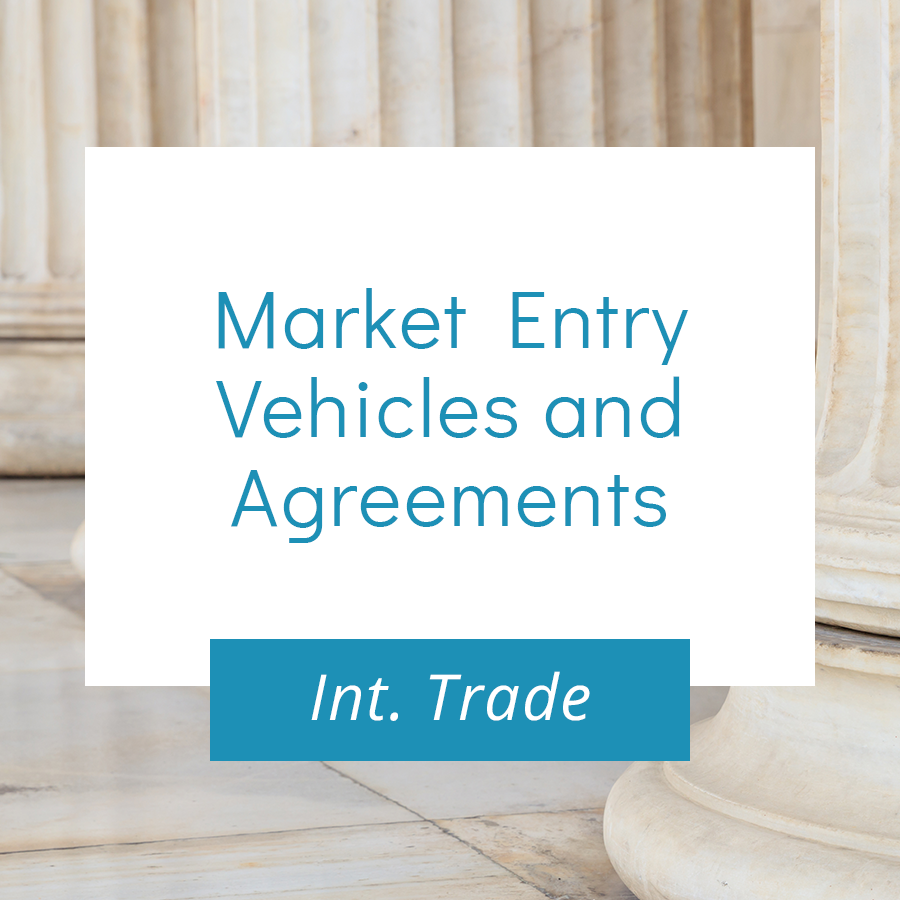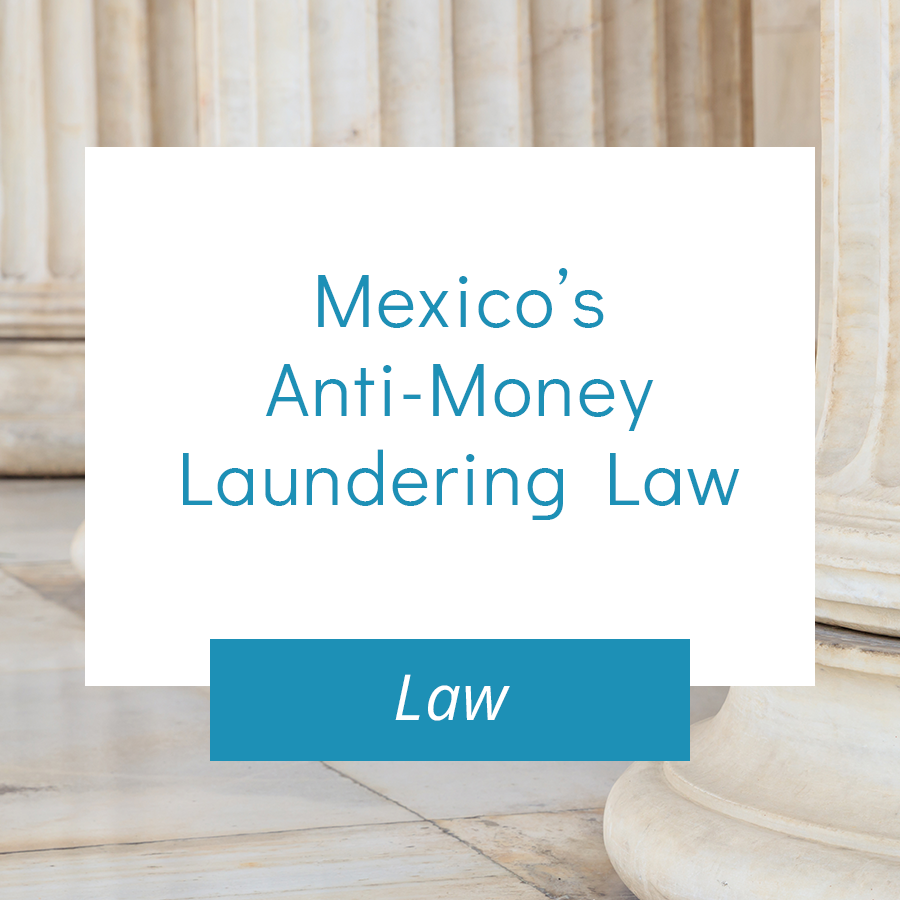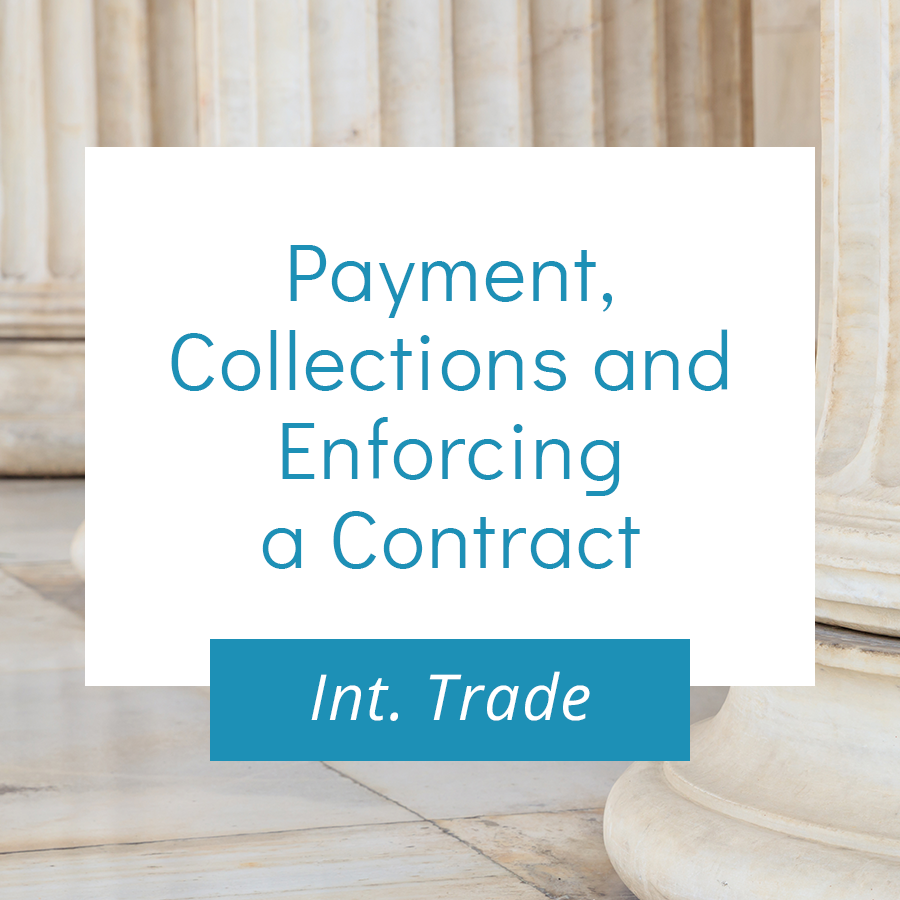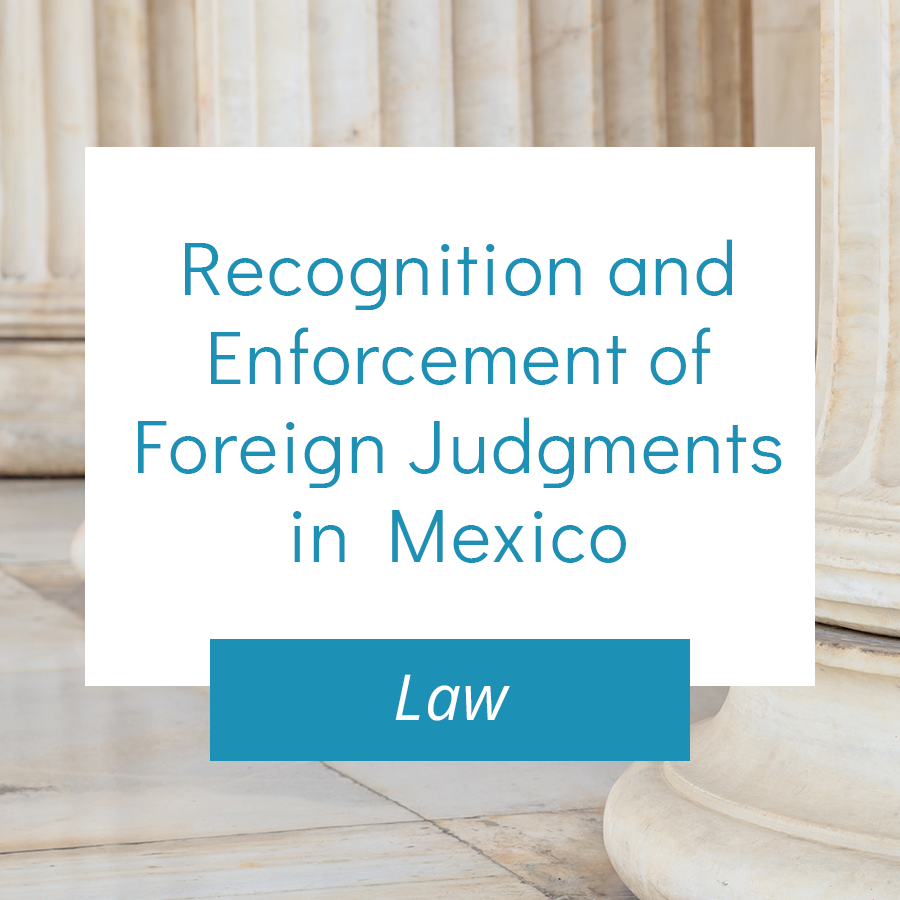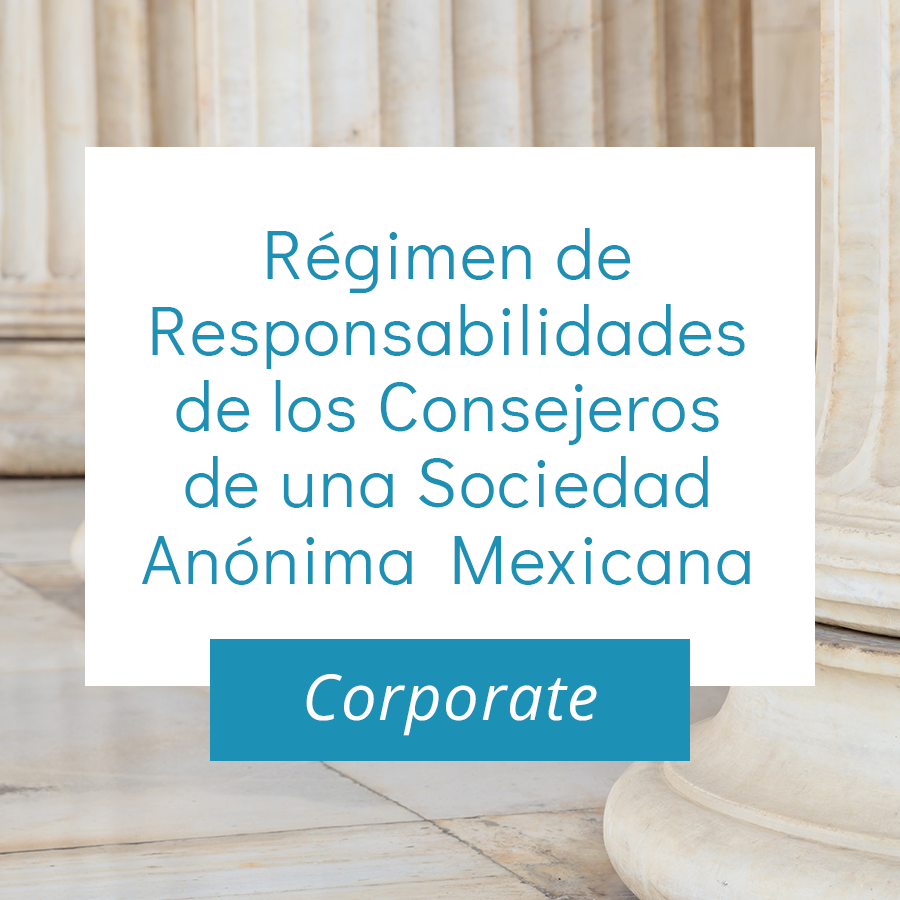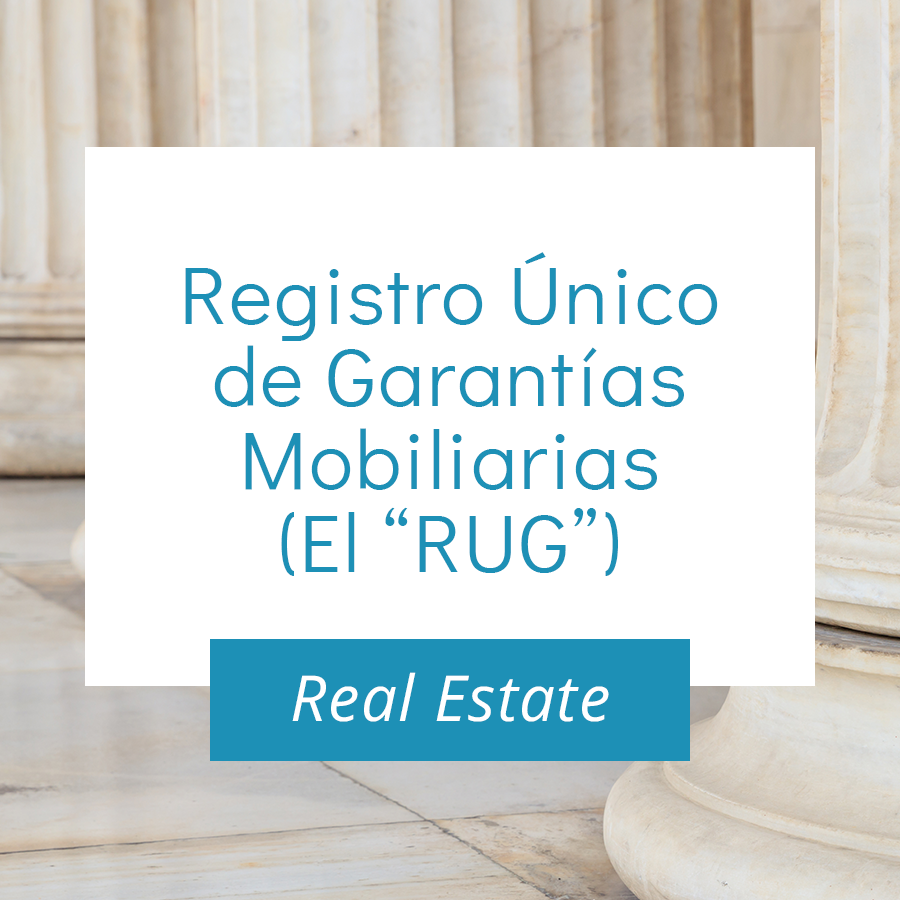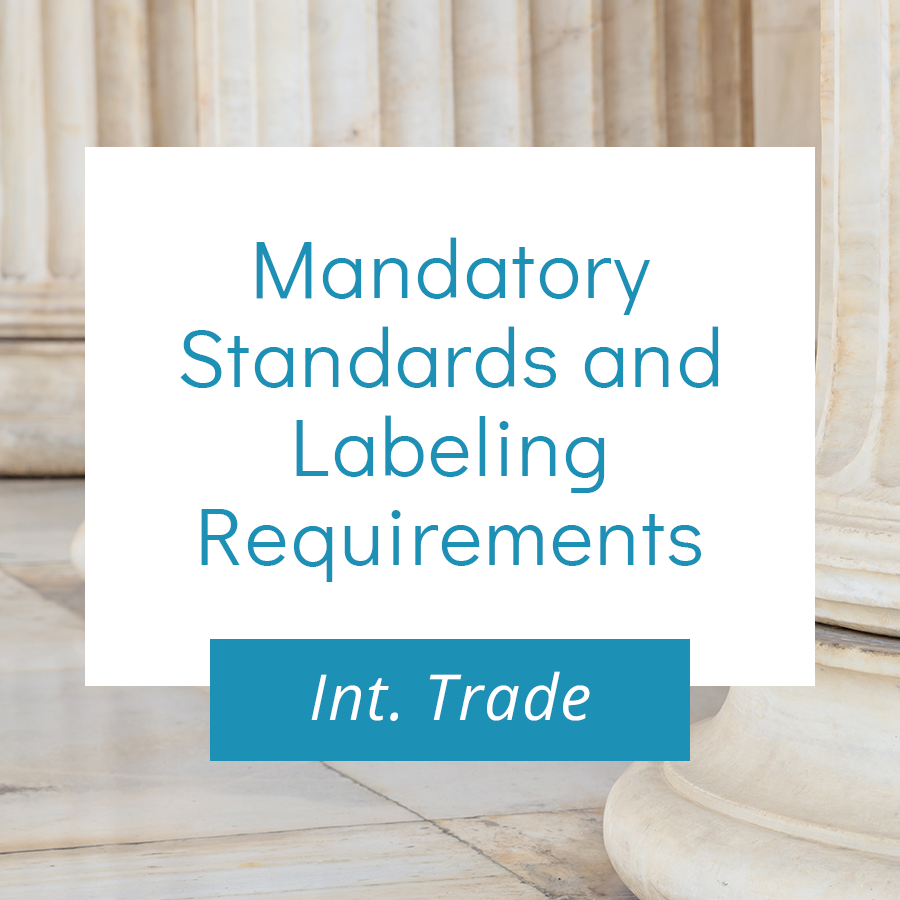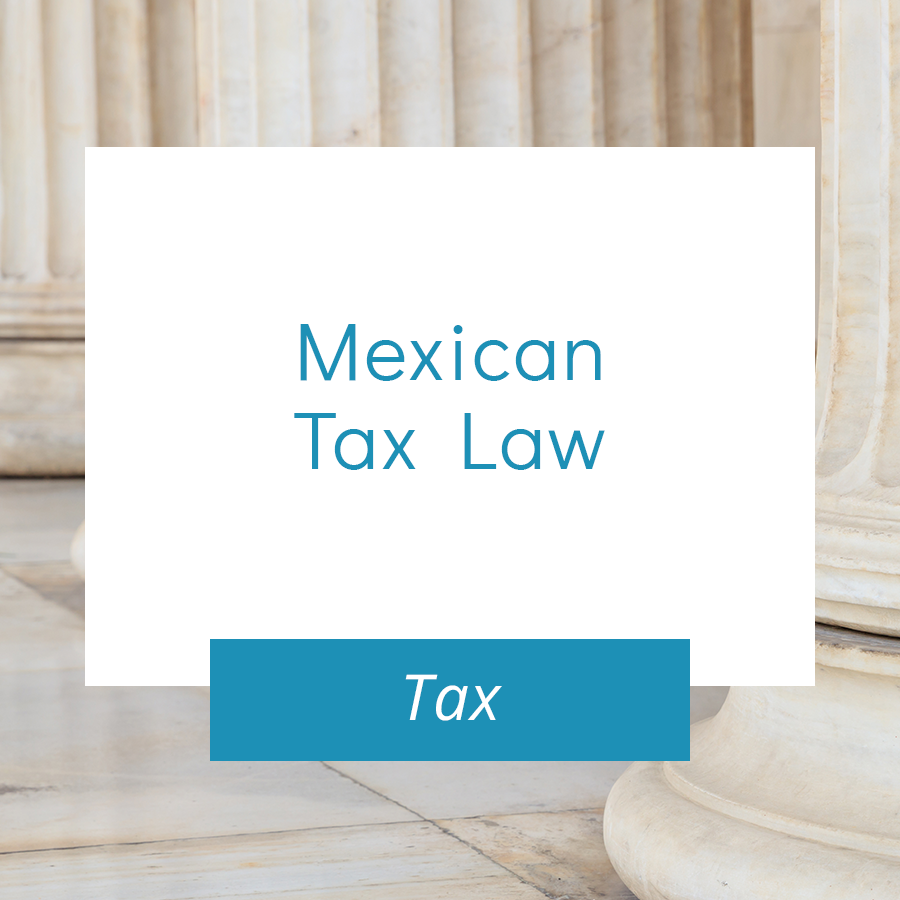White Papers
The Purchase of Real Property in Mexico
The acquisition of real estate in Mexico by foreign citizens requires adherence to strict formalities established by the Mexican constitution, laws, and civil law tradition. Foreigners who acquire property in Mexico without abiding by these formalities and laws run the risk of losing their investment and being subject to fines and penalties. Moreover, the Mexican…
Incorporating a Mexican Entity
Many U.S. companies looking to strengthen their position in the Mexican market will choose to incorporate a Mexican subsidiary sales office. Having a local subsidiary offers many advantages not otherwise available to companies exporting or doing business in Mexico, including: Delivering goods and services directly to Mexican customers supported by a Mexican invoices (factura) Contracting…
Immigration Procedures and Forms
All foreigners visiting, staying or developing activities in Mexico are subject to Mexican immigration law and regulations. Failure to comply with immigration provisions may be punishable by fine, prison and/or expulsion. Acts (such as signing contracts, bids, permits or other public and private documents) performed in Mexico by foreigners not holding the proper visa may…
Procedure for becoming a naturalized citizen of Mexico
The purpose of this memo is to explain the legal framework and documentation required to become a naturalized Mexican citizen and obtain a Naturalization Card or “Carta de Naturalización” (CN). I. TYPES OF NATIONALITY Nationality rules change from country to country. According to both Mexican and US law, a person may obtain nationality by…
Instrumentos Bursátiles Estructurados. Alternativa de fondeo para el sector inmobiliario
Como consecuencia de la crisis inmobiliaria y financiera que afectó al mundo a partir del año 2008 y la correspondiente falta de financiamiento tradicional crediticio, el gobierno Mexicano llevó a cabo una serie de acciones para impulsar el desarrollo en el país y en particular del sector inmobiliario y la infraestructura, entre las cuales se…
Personal Data Protection Law, Regulations and Compliance
Technology has changed the way businesses and authorities deal with personal information. As an emerging player in world economy, Mexico is no stranger to protecting how personal information is accessed, used and disclosed. Accordingly, Mexico has issued several regulations to protect personal data. The Personal Data Protection Law (PDPL), which entered into effect on…
Foreclosing on Cross-Border Loans in Mexico
One of the main issues confronting the financial sector worldwide as a result of the economic and real estate market troubles is how to deal with developers and homeowners alike who, due to unfavorable financial and market conditions, are unable to timely repay loans. This issue is particularly acute with respect to foreclosing on “cross-border…
Import/Export Procedure
Before shipping merchandise to Mexico, U.S. exporters are advised to secure the services of a licensed customs broker. Customs brokers are able to provide information on applicable duties and non-tariff regulations. More importantly, they are able to guide products through Mexico’s sometimes convoluted and confusing customs process in a timely and relatively hassle-free manner. The…
Labor and Employment Law
U.S. businesses operating in Mexico through a Mexican subsidiary or otherwise employing Mexico-based personnel must comply with Mexican labor law. Mexican labor and employment law is codified in the Mexican Constitution and the Federal Labor Law of 1970 (the “Law”). Mexican labor law is paternalistic and grants considerable legal rights and benefits to workers. For…
Letters Rogatory in Mexico
Mexico, a signatory to the Inter-American Convention on Letters Rogatory, has a well developed set of rules for presenting letters rogatory in Mexican courts, both federal and state, pursuant to the Mexican Federal Code of Civil Procedure (the “Law”). In addition to outlining the general rules for presenting letters rogatory in Mexican courts, the Law…
Market Entry Vehicles and Agreements
In defining a market entry strategy, U.S. exporters should evaluate both the risks and potential rewards associated with each available option. Although some market entry vehicles may involve less risk—both legal and commercial—these strategies also tend to offer the lowest potential returns and market staying power. Oftentimes, companies will choose a hybrid strategy, depending on…
Mexico’s Anti-Money Laundering Law
Because of several financial compromises in Mexico during former President Felipe Calderón Hinojosa’s term last year, Mexican authorities have created a federal law to combat money laundering and prevent terrorist financing. On Oct. 17, 2013, the Ministry of Finance published the Federal Law for the Prevention and Identification of Transactions from Illegal Funds (Money Laundering…
Payment, Collections and Enforcing a Contract
The best way for U.S. exporters to avoid collections problems in Mexico is to demand payment prior to shipment or delivery. The second most important suggestion might be to conduct legal, reputational and financial due diligence on your customer before extending credit or terms. Other tools available to mitigate the risk of non-payment or make…
Recognition and Enforcement of Foreign Judgments in Mexico
The recognition and enforcement of foreign judgments in Mexico is governed by international private law, Mexican federal law, and the laws of the Federal District of Mexico and the several Mexican states. On the international level, Mexico is a party to international agreements and, in general, adheres to a set of international norms and…
Régimen de Responsabilidades de los Consejeros de una Sociedad Anónima Mexicana
El siguiente es un panorama general sobre el tema de la responsabilidad legal de los Consejeros en una Sociedad Anónima, en el marco Ley General de Sociedades Mercantiles y la Ley del Mercado de Valores. I. Ley General de Sociedades Mercantiles (“LGSM”) y leyes supletorias en dicha materia. Comenzaremos por indicar que la regla…
Registro Único de Garantías Mobiliarias (El “RUG”)
En octubre de 2010 entraron en vigor diversas reformas al Código de Comercio, entre las cuales se instituyó un nuevo registro para garantías mobiliarias. La creación de dicho registro ha sido una necesidad desde hace muchos años, misma que finalmente vino a ser cubierta con la publicación del decreto de fecha 23 de septiembre de…
Mandatory Standards and Labeling Requirements
Two of the more complicated aspects of importing products into Mexico involve compliance with mandatory standards and labeling rules. Mandatory Standards (NOMs) Standards are official rules, technical specifications, guidelines and definitions that ensure that materials, products, processes, and services are harmonized and standardized. Mexican standardization procedures are established by the Methodology and Standardization Law,…
Mexican Tax Law
INTRODUCTION Mexican companies (including subsidiaries of foreign companies), as well as permanent establishments in Mexico of foreign companies are subject to: (1) federal taxation, including income tax, value added tax (VAT), and asset tax; (2) applicable foreign trade taxes, including customs processing fees, countervailing duties, if any, general import tax (import duties), and VAT; and…
COVID-19 As Force Majeure Event In Lease Contracts
The World Health Organization (WHO) declared the outbreak of COVID-19 as a Public Health Emergency of international concern on January 30, 2020. On March 11, the WHO declared COVID-19 as a pandemic. On March 30, the Mexican Health Department declared the pandemic to be a nationwide Public Health Emergency caused by a Force Majeure. The…




